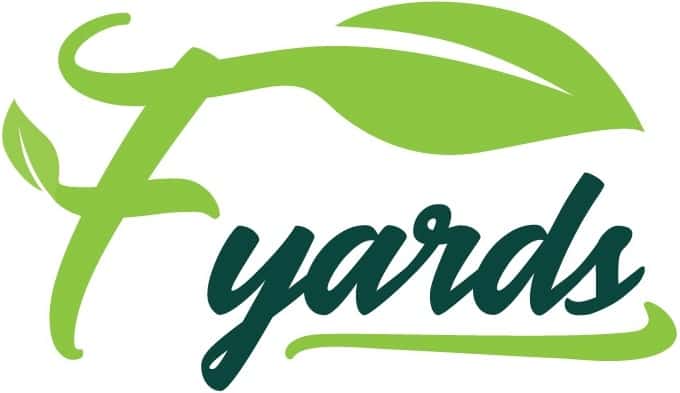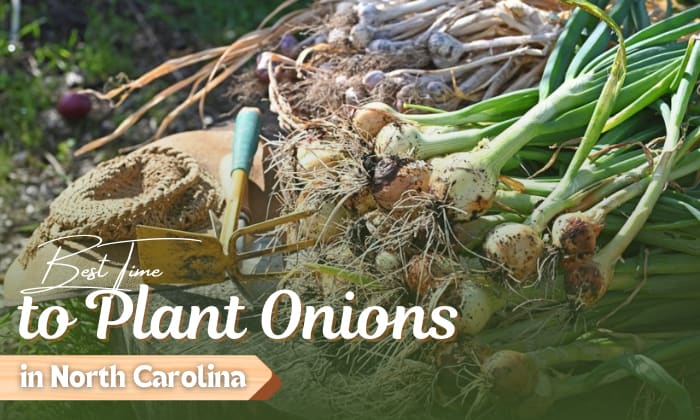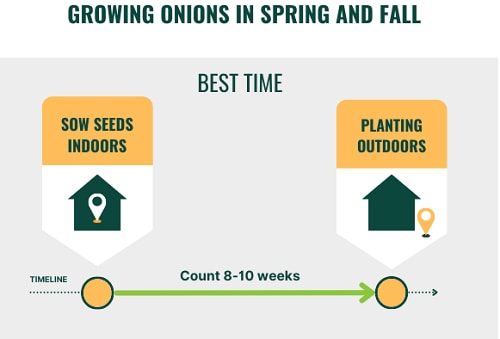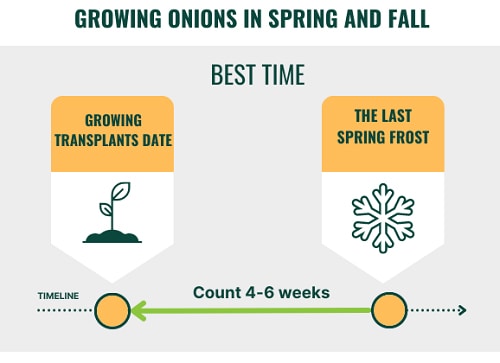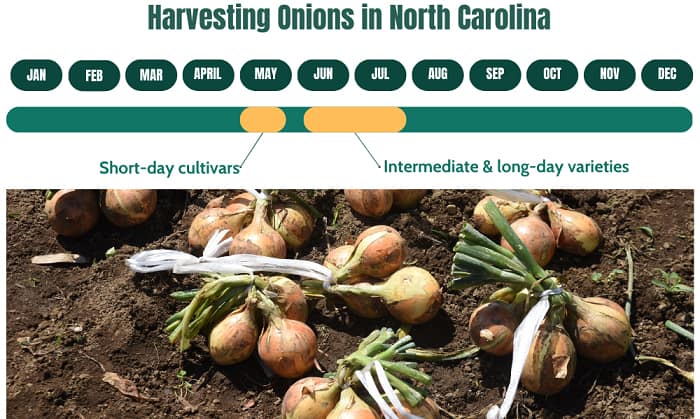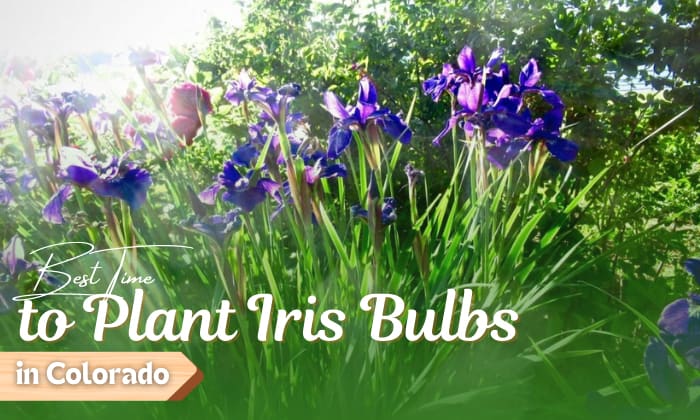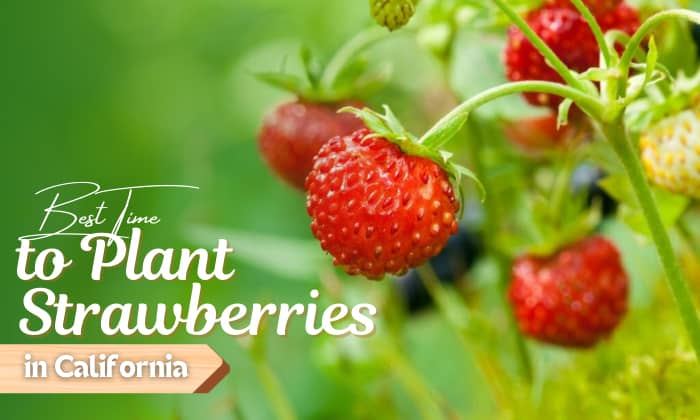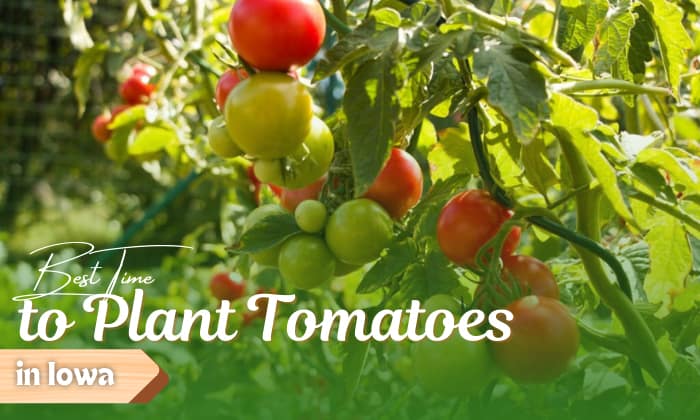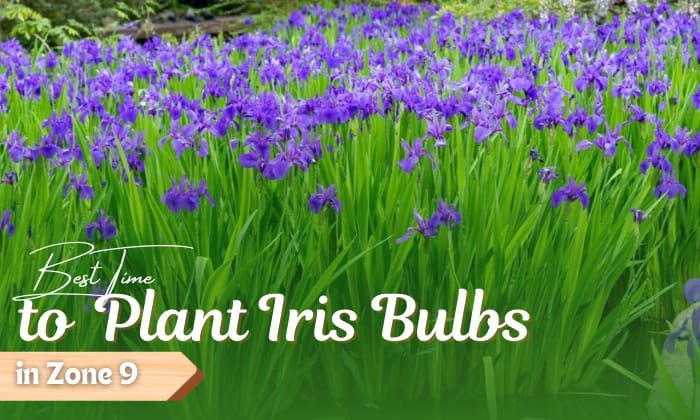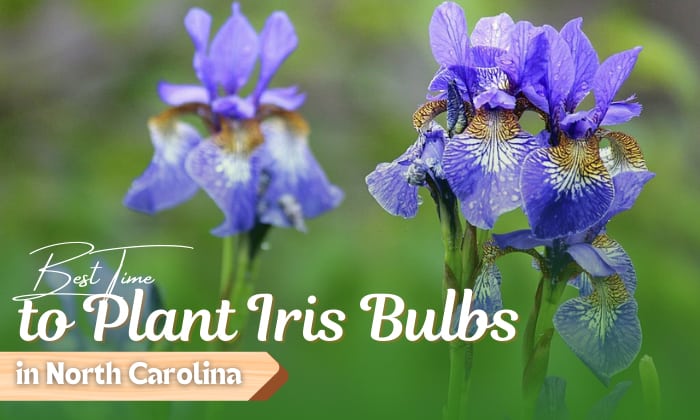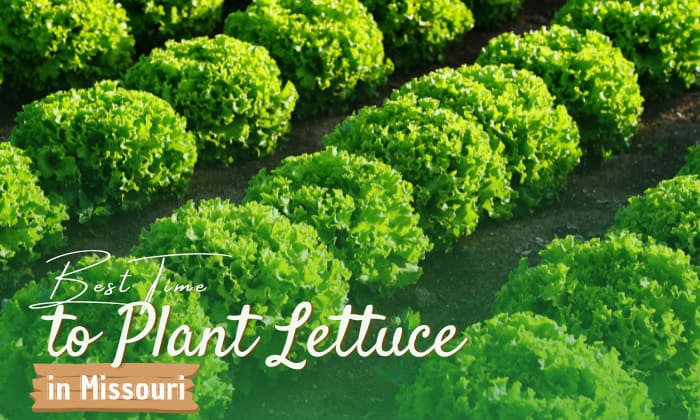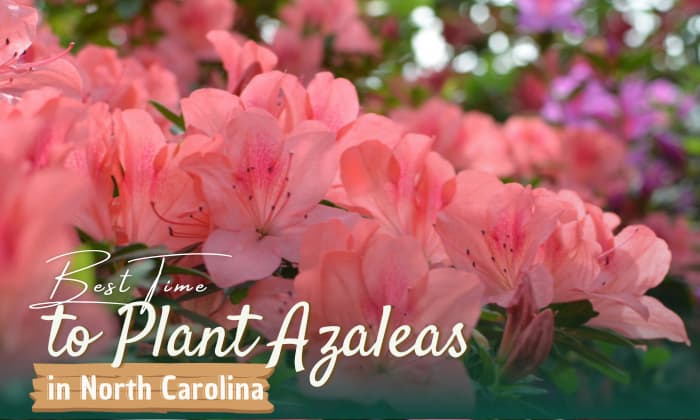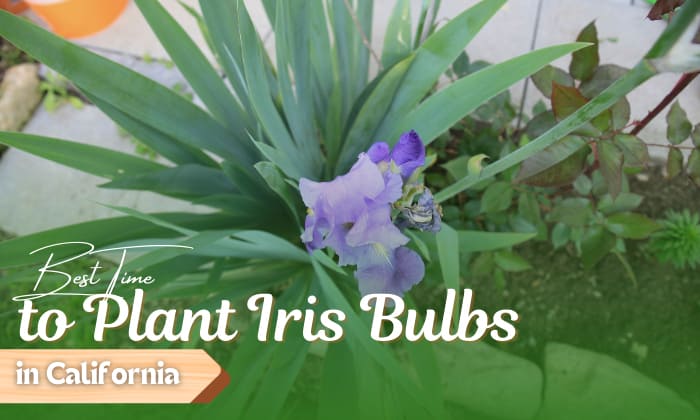Onions are pungent vegetables that add flavors to dishes without making them less healthy. These herbs are also straightforward to grow in North Carolina, provided you sow them around January 1 to March 15 in eastern and central NC. In western parts of the state, February 15 to April 1 often makes for a good time to plant onions.
As for autumn, August and September are the ideal months to start gardening. Read more below to know when to plant onions in North Carolina.
Table of Contents
Best Time to Plant Onions in North Carolina
1. In spring and fall
There are three options you have when planting onions at home. The first one is to plant onion seed, while the other choices are to grow them from transplants or sets.
Of these three options, sets are the least advisable to grow, since they are more likely to produce flower stalks than big, plump bulbs and are less resistant to low temperatures.
Starting transplants or seeds should give you higher chances of success with your gardening, provided you follow these rules to plant onions in NC:
- Sow seeds indoors eight to ten weeks before moving them outside or up to fifteen weeks before the last frost. Harden onions off for two to four weeks before transferring them into the garden, when the stalks are six to eight inches in height, and leaves have started to sprout.
- Grow transplants four to six weeks before the last spring frost. You don’t have to worry about cold temperatures harming them, as long as the weather doesn’t stay at 28℉ or lower for days on end.
- When growing onions from bulbs or sets, the spring schedule is the same as the one for growing transplants. Wait until there are four to six weeks left before the final frost to plant, or sow the sets four weeks before the first frost arrives.
- If you choose to start seeds in the fall, grow them four to eight weeks before the weather turns freezing cold. The ideal temperatures for these plants are 60 to 65℉ during the day and 55 to 60℉ at night.
To make things easy for you, here is an NC planting calendar that includes details on when to plant spring onions in NC, or scallions, as well as bulbs.
| Region | Plant onions in the spring | Plant onions in the fall | Goal |
| In western North Carolina |
|
August 1-15 for seeds
|
To produce bulbs |
| February 15 to April 1 (seeding can start in February, while transplanting should wait until March) | August 15 – September 15 transplanting OR September seeding for green onions | To produce green onions | |
| In eastern NC |
|
August 1 to December 15 for seeds | To produce bulbs |
| February 1 to March 15 seeding; transplanting in March
|
Transplanting from August 15 to September 1; seeding in September |
To produce green onions | |
| In central NC |
|
August 1 – December 15 for seeds | To produce bulbs |
|
|
To produce green onions |
2. Planting time for different onion varieties
There are three kinds of onions you can plant: short-day, intermediate, and long-day varieties. In North Carolina or zone 5b to 8b, short-day and intermediate types grow the best, while long-day onions or those that suit cool northern locations will do less well here.
That being said, you can plant all three types if you want. Below are the planting recommendations for some onion varieties in North Carolina.
| Cultivar | Plant in spring | Plant in fall |
| Short-day onions (best in zone 7 and higher) | Granex 33 (preferably transplant) | Early Grano, Tough Ball, Granex 33, Hi Ball, Texas Grano |
| Intermediate-day onions (any zone is fine, but best in zone 5 – 6) | Juno, MidStar, PrimoVera | Sweet Winter, MidStar, Juno, Willamette Sweet, PrimoVera |
| Long-day onions (zone 6 and lower) | Sweet Sandwich, Yula, Golden Cascade, Magnum, Durango, Avalanche |
Looking at the table above, it’s clear that short-day onions are ideal if you plant onions zone 8 crops, while intermediate types are good throughout North Carolina.
Harvesting Onions
Harvest onions when they are mature and about one-fifth of the tops have died off. If you plant onions for fall harvest, expect to collect your bulbs in North Carolina within June and July for intermediate and long-day varieties, or in May for short-day cultivars if not later.
For fall onions that overwinter, harvest time is pretty much the same.
Before picking onions, see if their neck is white, soft, and has flopped over. Cut one or two inches below the bulbs to detach them, and dry the onions outdoors if the weather is sunny. Remember not to stack the onions as you dry them.
Otherwise, cure the bulbs indoors under 75 to 80 degrees Fahrenheit, then store them in mesh bags or well-ventilated cardboard boxes. The temperature should be 35 to 40 degrees for the best storage longevity. Under this condition, you’ll be able to keep the onions for six months or more with minimal losses.
As for green onions, trim the shoots above the white section at the bottom of the plants for continuous harvests. Alternatively, pull the whole crops up by hand by shaking their base back and forth.
Frequently Asked Questions
Can you plant onions anytime of the year in NC?
No. There are several reasons for this. For instance, onions need at least 50 degrees Fahrenheit to germinate, so you can’t expect your seeds to sprout during winter. If you grow certain varieties too late, they also won’t receive enough daylight hours before day lengths start to decline.
Do onions need sun or shade to grow?
These plants need full sun to grow. Bulbing will not occur otherwise, and you may see bolting or excessive foliage growth on the onions. There is also the risk of fungal disease developing, especially if the weather is rainy.
These reasons are why we recommend giving onions ten or more hours of direct sunlight per day.
When to plant green onions?
It’s best to plant green onions in February and March or in April. Start seeds eight weeks before the first frost or eight to ten weeks prior to the last frost. In the spring, you can transplant green onions when the ground is workable and the weather is warm.
Conclusion
Whether it’s spring or bulb onions you’re growing, we hope you found this guide helpful. Knowing when to plant onions in North Carolina will help you produce an abundance of bulbs in the fall to put in your dishes or gift to friends and family. You only need to pick the right variety and plant it under frost-free weather.
Related:
- When is the best time to plant hydrangeas in North Carolina
- Best time to plant potatoes in North Carolina
- Pumpkins planting calendar in North Carolina

Hi, I am William – Floridayards’ digital content creator. My job is to find answers to all your concerns with thorough research and our team’s expert advice. I will also bring you honest reviews on the best products and equipment for raising your beautiful garden. Please look forward to our work!
